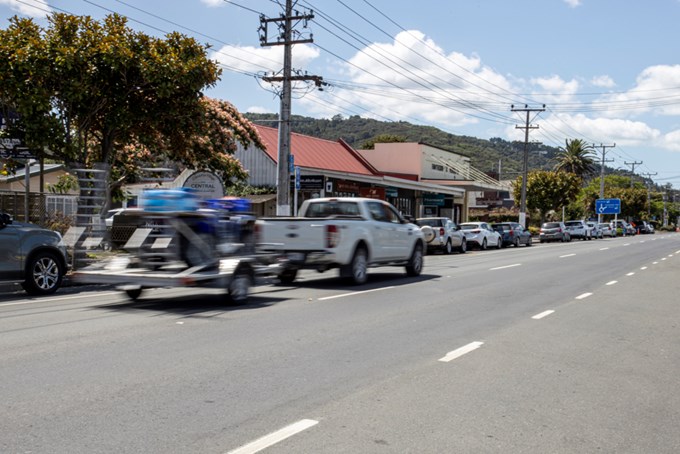Deprivation isn’t only a matter of low income and skill levels, Franklin Local Board says in its input on Auckland Council’s draft Economic Development Action Plan: Council’s role in Auckland’s recovery 2021-24.
The board supports responding to communities with the greatest need but wants that need measured against isolation as well as income and skill levels.
“Deprivation through isolation is an issue,” board chair Andy Baker says. “We have areas with unreliable phone coverage, let alone mobile and internet connectivity. Many have limited transport choices which compromises access to customer bases and services, which in turn means isolated rural communities can struggle to contribute fully to the economy.”
Like Rodney in the north, Franklin contains large areas of agricultural and horticultural land, and the board says the economic plan should recognise the part the rural economy can play in any recovery.
“The plan tends to focus on continued investment in centralised big-business and urban-based interventions as a solution to our challenges, but there’s more we can do in the rural space,” Baker says.
“We’d suggest Auckland has other advantages, including large areas of elite soils and a wide variety of quality food production, that would warrant further investment and leverage.”
The board’s submission says the plan almost assumes a return to pre-COVID-19 levels of business when it could be worthwhile considering leveraging opportunities to spread activity beyond the city.
“The significant green-field development around Drury is a chance to attract future-facing industries and expand existing ones and the employment they offer at a time of rapid population growth,” Baker says.
He says local boards can play an important role in setting and delivering the city’s strategic priorities. “We would suggest local economic opportunities, as identified and funded by boards, are a lever the plan could make use of.”
The board did acknowledge the plan was constrained by an inability to fund new initiatives in the context of the Auckland Council Recovery Budget.
The city’s 21 local boards have all been asked to provide feedback on the plan. It will be analysed before being presented to the Parks, Arts, Community and Events committee in July for adoption.
About the draft Economic Development Action Plan
The council and council-controlled organisations have worked to develop the draft plan. It agrees the council family’s economic objectives and priorities for the next three years, setting a coordinated course of action.
The plan is limited to actions within the remit of council and CCOs, aligns with the 10-year Budget, and will inform council department work programmes.
It outlines actions within six areas of focus, and reflects the guiding principles of transitioning towards a regenerative and low-carbon economy, supporting economic opportunities for Māori, and responding to communities of greatest need.
It is not a long-term strategy and does not replace the Economic Development Strategy 2012. The priorities and focus over the next three years, however, consider direction from council’s existing strategies, such as the Auckland Plan 2050, Te Tāruke-ā-Tāwhiri: Auckland’s Climate Plan and Kia Ora Tāmaki Makaurau: Council’s Māori Outcomes Framework.
Read the report in the Franklin Local Board agenda – item 14.


